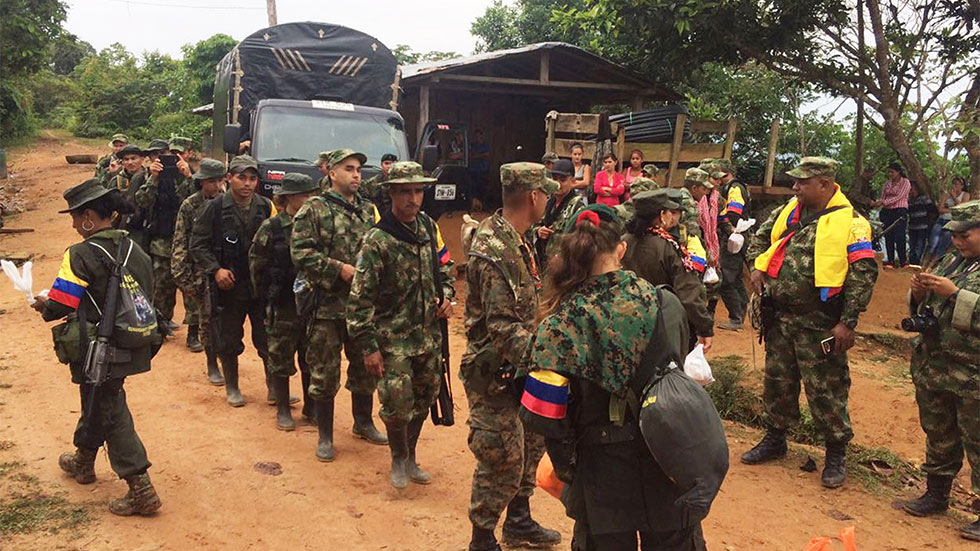Mexico’s leading drug cartels are allegedly trying to recruit former FARC commanders to strengthen their control over Colombia’s drug trade, according to multiple reports.
With the recruitment of former guerrilla chiefs, the drug trafficking organizations allegedly hope to strengthen their control over coca plantations and cocaine exports from Colombia.
Mexican crime groups “are going to end up controlling the country’s criminal structures,” crime analyst Fernando Quijano, told Mexican news agency APRO.
Colombia’s Prosecutor General and the country’s Ombudsman confirmed the expansion of Mexican activity in the drug trade, often in former FARC territory.
Many people who were in many illegal organizations have been offered up to 50 million pesos ($18,000) a month to be part of these cartels.
Fernando Quijano
Former mid-level FARC commanders who are “disappointed with the course of the implementation of the peace accords” with the guerrilla group “are now being armed by the cartels.”
They are the ones where the strategic corridors are, they know which men were under their command and how this works.
Fernando Quijano
According to Quijano, the Colombian drug trade is increasingly controlled by three Mexican groups, the Sinaloa Cartel, Los Zetas and the Jalisco Nueva Generacion.
The Medellin-based analyst resigned Friday, claiming that local authorities failed to respond to death threats that targeted his family.
Medellin’s leading crime analyst says ‘I give up’ after 20 years
According to Prosecutor General Nestor Humberto Martinez, cartels are buying up coca plantations and sending Mexican experts to optimize to “improve productivity of the plantations.”
“The number of citizens from that country that participate in criminal activity is ever increasing, there are more than 100,” Martinez said.
Authorities have reported activity of Mexican drug trafficking organizations in eight of Colombia’s 32 provinces. Quijano and the country’s ombudsman added another three to that list.
According to Ombudsman Carlos Negret, the Sinaloa Cartel is also financing and arming local crime groups along important drug corridors in the north of the country.
The alleged rearming of former members of the FARC is similar to what happened after the demobilization of paramilitary organization AUC between 2003 and 2006.
The AGC, the most powerful illegal armed group in Colombia, was formed by mid-level paramilitary commanders who claimed to be betrayed by the government of former President Alvaro Uribe.
This group has now become the Mexican cartels’ main ally in Colombia.
The United Nations, which monitors the peace process with the FARC, has warned the administration of President Juan Manuel Santos that more than half of the former FARC guerrillas who demobilized last year left their demobilization camps.
Mexican smugglers have been working with their Colombian counterparts since the late 1970s. The FARC “taxed” drug trafficking activity in guerrilla-controlled territory between 1982 and 2016.




